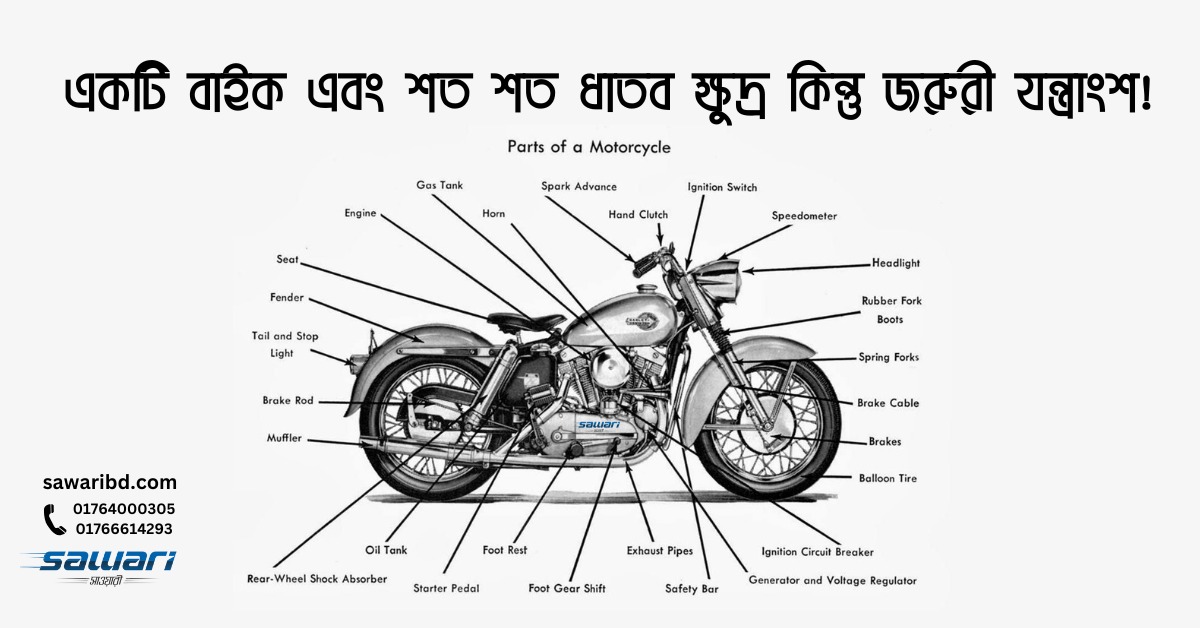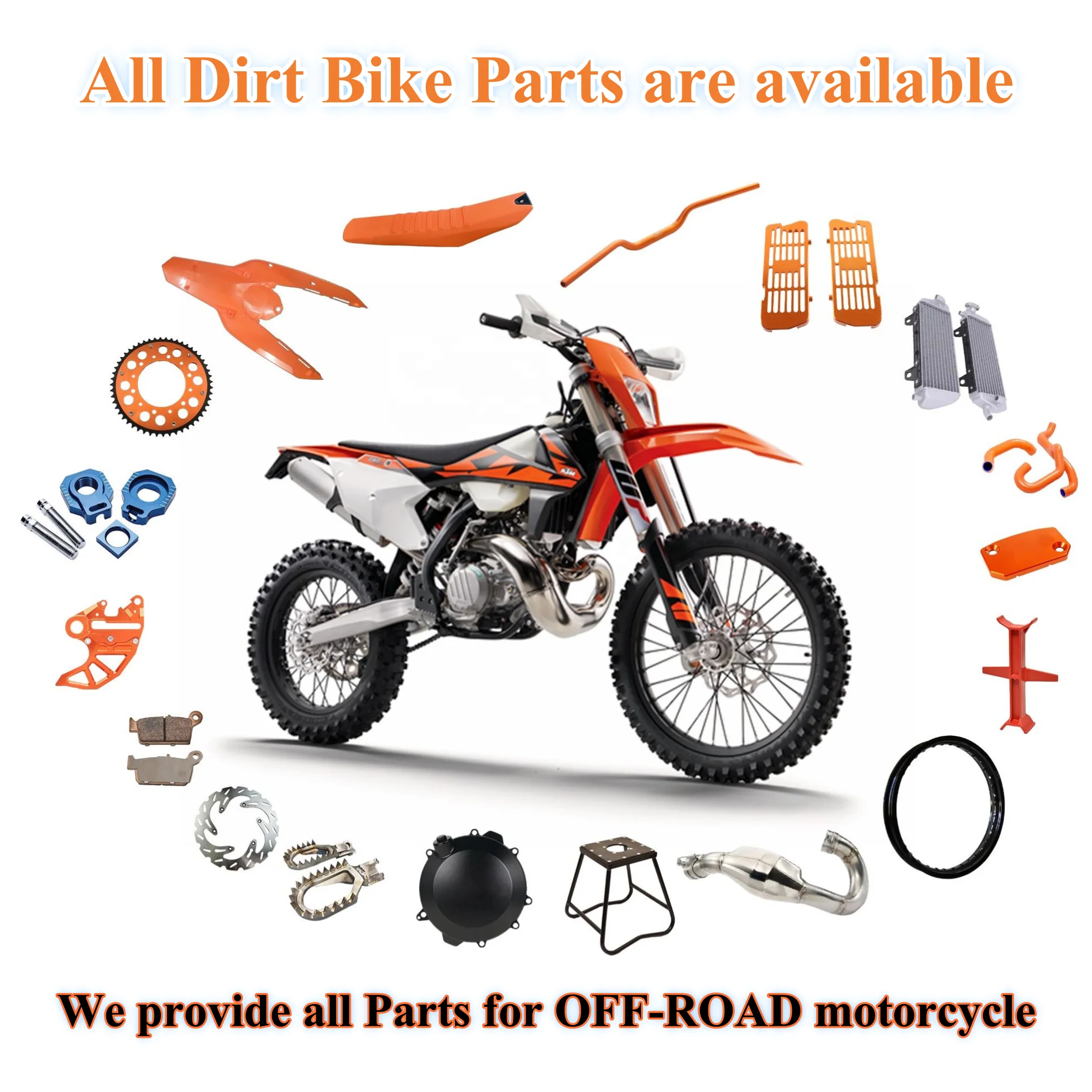Maximize Your Ride with High-Efficiency OEM Parts New Zealand
Maximize Your Ride with High-Efficiency OEM Parts New Zealand
Blog Article
Discover the Crucial MotorBike Parts You Required for Ideal Performance
Recognizing the vital parts of a motorbike is essential for attaining peak performance. Each component, from the engine to the braking system, plays an essential role in overall performance and security. Routine upkeep can protect against unforeseen failings and boost the riding experience. Lots of bikers ignore the ins and outs of these systems. Finding just how they function with each other can lead to a much more effective experience. What vital parts should every rider focus on?
The Engine: The Heart of Your Bike
The engine offers as the core part of a motorcycle, driving its efficiency and specifying its abilities. It is in charge of converting fuel into power, which powers the bike ahead. Numerous sorts of engines are utilized, including single-cylinder, V-twin, and inline setups, each offering unique attributes matched for various riding purposes and designs. The engine dimension, commonly determined in cubic centimeters (cc), substantially affects performance, with bigger engines generally providing even more power and torque.Furthermore, the engine's design and technology, such as gas shot systems or air-cooling versus liquid-cooling, affect efficiency and reliability. Upkeep is necessary for peak operation; factors like normal oil modifications and monitoring ignition system guarantee long life. Riders frequently take into consideration an engine's responsiveness and smoothness, as these qualities improve the general riding experience. Ultimately, the engine stays an essential aspect that specifies not just the motorcycle's efficiency however likewise the rider's connection to the device.
The Transmission: Changing Gears Efficiently
The transmission plays a necessary function in a motorcycle's performance, specifically in the technicians of gear moving. Understanding exactly how to change gears efficiently can enhance the total riding experience, while regular maintenance assurances peak functionality. Appropriate focus to these elements can greatly influence the durability and performance of the motorbike.

Gear Shifting Mechanics
Smooth equipment shifting is important for ideal motorcycle performance, significantly influencing both acceleration and control. The auto mechanics of equipment shifting include the communication in between the clutch, equipment lever, and transmission system. When a motorcyclist involves the clutch, it disengages the engine from the transmission, permitting an equipment change without damaging the elements. A well-timed release of the clutch, combined with exact activity of the equipment bar, promotes a seamless change in between equipments. This procedure assures that the engine runs within its finest power band, boosting performance. Oem Parts New Zealand. In addition, understanding the equipment ratios and their result on speed and torque can assist riders make educated choices during shifts, ultimately adding to an extra receptive and satisfying riding experience
Maintenance Tips Value
Routine maintenance plays a necessary duty in assuring that the transmission system runs effectively, permitting for smooth gear changes. On a regular basis examining and transforming the transmission liquid is essential, as old liquid can result in raised rubbing and wear. Furthermore, examining the clutch for wear warranties peak involvement and disengagement, stopping slippage throughout gear modifications. Lubrication of moving components is similarly crucial to decrease rubbing and improve efficiency. Motorcycle proprietors must likewise keep track of for leakages and uncommon sounds, as these can indicate underlying problems. By adhering to these upkeep tips, cyclists can extend the lifespan of their transmission system, ensuring that equipment changes remain smooth and adding to the overall performance of their motorbike.
The Braking System: Ensuring Safety on Every Ride
Braking systems are fundamental parts that straight influence a motorbike's security and performance. They include various components, consisting of brake pads, rotors, calipers, and hydraulic lines, all collaborating to assure reliable slowdown. The kind of braking system-- normally either disc or drum-- affects responsiveness and quiting power.Regular maintenance is vital to copyright peak performance; worn brake pads can cause reduced effectiveness and raised quiting distances. Furthermore, the top quality of brake liquid need to be checked, as it can take in moisture over time, jeopardizing stopping efficiency.Riders need to additionally consider the value of anti-lock braking systems (ABDOMINAL), which protect against wheel lockup throughout sudden stops, improving total security. Appropriately working brakes are not just concerning stopping; they impart confidence in the cyclist, permitting safer navigation with numerous terrains. Ultimately, a reliable braking system is critical for delighting in every trip with satisfaction.
The Suspension: Enhancing Comfort and Control
A well-functioning suspension system significantly adds to a motorbike's total performance, enhancing the performance of the braking system. The suspension plays a considerable function in absorbing shocks from irregular surfaces, ensuring a smoother trip while keeping tire call with the road. This contact is crucial for both stability and control, permitting riders to navigate corners with confidence and precision.Different types of shock absorber, such as telescopic forks or mono-shocks, supply varying levels of convenience and handling. Appropriately tuned suspension boosts responsiveness, giving the biker with a more connected feel to the motorbike. Regular upkeep checks are necessary to establish the suspension parts, including springtimes and dampers, are operating at their finest. An efficient shock absorber not only raises the riding experience yet likewise adds to the longevity of various other motorbike components by reducing damage. Consequently, purchasing top quality suspension is important for any kind of significant motorbike fanatic.
The Tires: Linking You to the Road
Tires play a vital role in a motorbike's performance, serving as the key link in between the biker and the roadway. Comprehending the different kinds of tires available can significantly affect taking care of and safety. Furthermore, routine upkeep is important to assure peak tire performance and long life.
Tire Types Explained
Exactly how do various tire kinds influence a motorbike's efficiency? Tire kinds play a vital function in establishing a motorbike's hold, security, and handling. Sport tires, created for high efficiency, deal enhanced traction and responsiveness on smooth roads, making them optimal for racing and aggressive riding. On the other hand, touring tires focus on resilience and convenience, providing a smoother adventure for long-distance traveling. Off-road tires, characterized by their tough tread patterns, succeed in look these up grip on unpaved surface areas, suitable for journey fanatics. In addition, dual-sport tires blend attributes from both on-road and off-road groups, satisfying functional riding needs. Eventually, picking the ideal tire type is important for optimizing efficiency, guaranteeing security, and boosting the overall riding experience.
Upkeep Tips Offered
While riding on the road, keeping perfect tire problem is crucial for security and performance. Frequently checking tire stress is very important, as under-inflated tires can lead to poor handling and enhanced wear. It is suggested to inspect step deepness often; worn tires concession grip and stability. In addition, riders should search for indications of damage, such as splits or bulges, which can indicate the need for replacement. Turning tires periodically assures also use, improving longevity. Furthermore, maintaining tires tidy from particles and avoiding excessive aesthetics can extend their lifespan. Keeping proper placement and balance adds to come to a head performance, minimizing stress and anxiety on other bike parts. Complying with these maintenance suggestions will significantly boost the total riding experience.
The Fuel System: Sustaining Efficiency and Effectiveness
The gas system plays a vital role in you can try here making best use of a motorbike's efficiency and effectiveness, as it ensures the ideal delivery of fuel to the engine. It comprises several vital components, including the fuel container, fuel pump, fuel filter, and gas injectors or carburetor. Each part has to work efficiently to guarantee a smooth and powerful ride.The gas tank stores gas and provides it to the engine via the fuel pump, which produces the essential stress. A fuel filter protects against contaminants from entering the engine, while the injectors or carburetor mix gas with air for combustion.Proper maintenance of the fuel system is critical; a stopped up filter or malfunctioning injector can cause reduced performance and enhanced gas usage. By verifying that the fuel system operates efficiently, riders can appreciate enhanced throttle feedback, better fuel economic situation, and in general boosted riding experience.
The Electrical System: Powering Your Ride
An effective electrical system is crucial for the overall functionality and safety of a motorcycle, as it powers important components such as the ignition, lighting, and various electronic systems. This system consists of the battery, which stores energy, and the alternator, in charge of generating power while the engine runs. The wiring harness connects these components, guaranteeing trusted power distribution.Additionally, integrates safeguard the system from overloads, while relays help manage high-current devices with low-power signals. A properly maintained electric system boosts performance by ensuring smooth begins and consistent operation of lights and signals, crucial for motorcyclist exposure and safety.Regular checks of the battery's charge and links are necessary for protecting against electric failures. Motorcyclists need to additionally examine electrical wiring for damage, making sure all components operate ideally. Eventually, a robust electrical system adds considerably to the total efficiency and reliability of the motorbike.
Regularly Asked Inquiries
Exactly how Commonly Should I Change My Motorcycle's Battery?
The frequency of bike battery replacement depends upon use and maintenance (Oem Parts New Zealand). Typically, batteries ought to be replaced every 3 to five years. Routine checks can assist recognize when a replacement is necessary for peak performance
What Tools Do I Required for Basic Motorbike Upkeep?
For standard bike upkeep, one requires necessary devices such as an outlet collection, wrenches, screwdrivers, pliers, tire stress scale, and a torque wrench. These devices help with efficient upkeep and ensure the motorbike runs successfully and securely.
How Can I Improve My Motorcycle's The rules of aerodynamics?
To enhance motorbike the rules of aerodynamics, one should think about adjusting fairings, using windshield extensions, optimizing body position, and minimizing general weight. These alterations help reduce drag, boosting security and gas performance throughout adventures.
What Are the Indicators of a Failing Electric System?
Indicators of a stopping working electrical system include dimming lights, problem starting, uneven instrument readings, and blown integrates. Bike Parts Wellington. Unusual smells or corrosion around battery terminals might likewise indicate underlying site link problems needing immediate focus for safety and performance

Just how Do I Select the Right Oil for My Motorcycle?
When selecting oil for a motorcycle, one ought to consider the producer's specifications, viscosity scores, and the type of riding. In addition, synthetic versus standard oil can influence efficiency and engine security, influencing the choice considerably. The engine dimension, normally determined in cubic centimeters (cc), considerably influences performance, with bigger engines typically offering more power and torque.Furthermore, the engine's layout and technology, such as gas injection systems or air-cooling versus liquid-cooling, affect effectiveness and reliability. A well-functioning suspension system substantially contributes to a motorcycle's total performance, enhancing the efficiency of the stopping system. The gas system plays a crucial duty in making the most of a motorcycle's efficiency and effectiveness, as it ensures the optimal distribution of fuel to the engine. A fuel filter prevents contaminants from getting in the engine, while the injectors or carburetor mix fuel with air for combustion.Proper upkeep of the gas system is crucial; a stopped up filter or malfunctioning injector can lead to decreased performance and increased gas intake. A well-maintained electric system boosts efficiency by making certain smooth begins and consistent operation of lights and signals, crucial for biker visibility and safety.Regular checks of the battery's fee and links are vital for preventing electrical failings.
Report this page